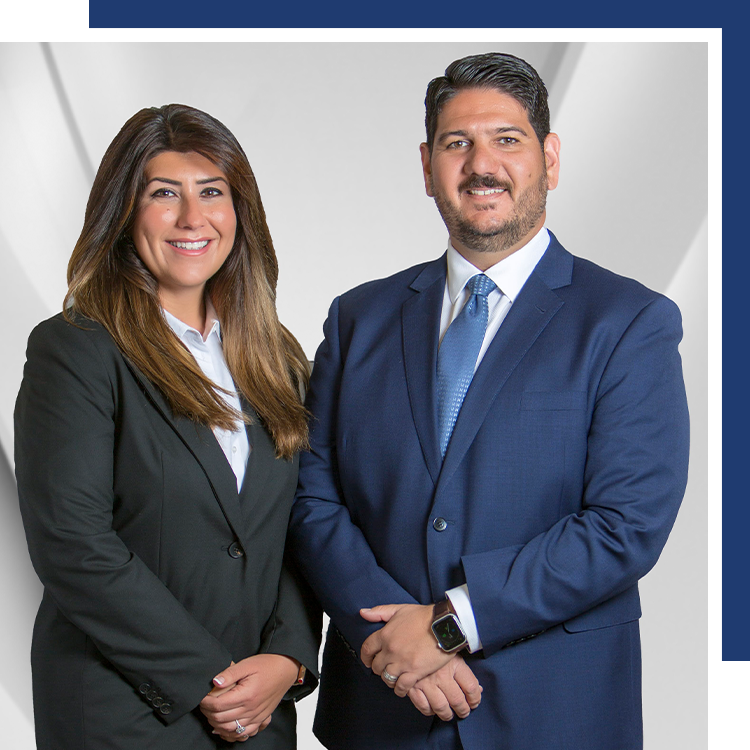Get strategic, trial-ready representation from former prosecutors who fight for your future. Call Zen Law Firm today.
Plano Attorneys
Criminal Defense, Immigration, Personal Injury & Disability Counsel in Collin & Denton Counties
At Zen Law Firm, we are dedicated to serving the legal needs of clients throughout Collin and Denton Counties. We provide responsive and caring legal services through a broad range of case types, applying our experience and insight to every case we take on. Our team is well-versed in criminal defense, personal injury, immigration law, and more, and we use our broad background to develop comprehensive case solutions for all of our clients.
For ethical and professional legal counsel, call (469) 361-8561 or reach out online to schedule your initial consultation.


Our Services
Fierce Advocates For Your Peace of Mind


Your Calm in the Storm
Meet Your Dedicated Legal Team

-
Jason Zendeh Del is a fantastic attorney that provides excellent counsel. He and his staff are very responsive and it is evident that he truly cares about his clients.- Jason D.
-
They were amazing! I would highly recommend them. They responded fast and explained everything. Stayed in contact with me the whole time. I applied for disability and was approved - quicker than I expected.- Kerry L.
-
I'm extremely pleased!! After my first phone call with them, they told me they got it from here, and they sure did! It was literally only a couple of months and I was approved for disability.- Lajuana H.
-
They got me approved for SSI and my life has changed for the better. I was homeless & starving before; now I can buy my basic needs and even get my granddaughter a birthday present!- Jerry Z.

Our Pledge to Clients
We pledge to treat clients with courtesy and respect while handling all legal matters to the highest professional standards. We charge reasonable fees and explain all potential fees in advance. Our lawyers will keep you informed throughout the duration of your case, including promptly returning your calls, providing copies of important paperwork, explaining your legal options, respecting your decisions in accordance with the Rules of Professional Conduct, and making complex law more accessible.
How We Help You
Our firm is committed to providing aggressive, competent, and caring representation to our clients in a variety of legal settings. We take great pride in our experiences and backgrounds and use our knowledge to benefit each and every one of our clients, no matter what they are facing. We always serve our clients with professional integrity, honesty, and the highest legal and ethical standards. Client satisfaction is our first priority. We extend our services outside of the courtroom, remaining accessible when our clients need us. Whether you’ve been arrested, injured, or are facing a bankruptcy or immigration matter, our firm is dedicated to helping you get through trying times.



Our Clients Are Our Priority
Most of our criminal and DWI defense clients are first-time offenders and good people caught in a bad situation. If you or your loved one finds themselves in a tough spot, it could ruin your life. Our goal is to protect your rights, your future, and your reputation. Whether a felony or a misdemeanor, we apply the same level of compassion, dedication, and insight to seeking the results you deserve.
In civil cases, such as bankruptcy, immigration, and personal injury, your livelihood may be on the line. We know the stakes and will work diligently to devise a legal solution that meets your unique needs. Our legal advocates give you a voice in the courtroom and will apply our experience and commitment to benefit every case we take on.
Learn more about your options by calling our lawyers in Plano at (469) 361-8561 or filling out our online contact form today.
-
Former Prosecutor on Your Side
With firsthand knowledge of how cases are built and prosecuted, our team anticipates strategies and builds stronger defenses.
-
Trial-Tested Experience
We’ve handled hundreds of trials and thousands of hearings across state and federal courts—and we prepare every case as if it’s going to court.
-
Full-Service Representation
From criminal defense to personal injury and immigration, we offer skilled legal support across multiple practice areas.
-
Broad Strength, Local Access
With offices in Plano, Fort Worth, and San Antonio, you get personalized service backed by a firm with statewide reach.















